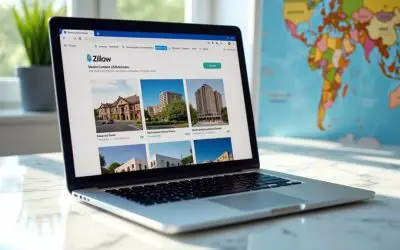The Green Party policy on private landlordism aims for significant changes in how homes are rented in the UK. Currently, private landlords own 19% of homes, a rise from just 9% in 1990.
- Many people rent their homes from private landlords.
- There are more private rented homes now than before.
| Component | Description |
|---|---|
| Phase out private landlords | The Green Party policy on private landlordism seeks to remove private landlords from the housing system. |
| Increase socially rented homes | The plan is to build more council houses for people who need cheaper homes. |
| Regulation of private rentals | New rules will control private rentals and add taxes to rental income. |
| Rent controls | The policy will set limits on how much rent can cost. |
| End buy-to-let mortgages | The plan will stop buy-to-let mortgages to reduce private rental investments. |
| Right to buy for councils | Councils can buy rental homes at a lower price when they are sold. |
| State-owned housing manufacturer | A new group will make lots of good council houses for local councils. |
| National insurance on rental income | There will be a charge on rental income to help control the private rental market. |
These changes raise important questions for landlords, tenants, and anyone who cares about the future of housing.
Key Takeaways
- The Green Party wants to slowly stop private landlords. They want a fairer housing system for everyone. New rules will set limits on rent prices. These rules will also stop unfair evictions. Councils will get more control over housing. They can buy empty homes if needed. The plan will build 150,000 new social homes each year. This will help people who need homes. Money for these changes will come from higher taxes. Wealthy people and rental income will be taxed more.
Private Renting in the UK
Market Overview
The private rental sector has changed a lot in twenty years. More people now rent homes from private landlords than before.
- About 20.3% of UK households live in private rented homes.
- In 2021, five million households in England and Wales rented privately.
- The private rented sector is twice as big as it was in the early 2000s. It grew from 10% to almost 20% of the housing market.
- In 2001, only about 10% of people rented privately. Now, more than 20% do.
- This sector is the second biggest type of housing in England, just after owner-occupiers.
Many families and young people rent because buying a home is harder now. More people want to rent homes, especially in cities.
Sector Challenges
Renters in the UK have many problems. The cost of renting has gone up fast. Many people find it hard to pay their bills.
Note: Housing costs are now the main reason for poverty in the UK. Many families spend a lot of their money on rent.
Some main problems are:
- Not enough homes for everyone who wants to rent.
- More people want to rent because there are not enough social homes and it is hard for first-time buyers.
The table below shows some common problems for private renters:
| Challenge | Statistic |
|---|---|
| Struggling with debt | Private renters are almost twice as likely to have debt problems compared to other people. |
| Rent increases | About 3.7 million private renters had their rent go up in the last year. |
| Using credit to make ends meet | More than 1.2 million private renters use credit to help pay for things. |
Many renters use credit cards or loans to pay for basic needs. Higher rents and fewer cheap homes make life tough for millions of people.
Green Party Policy on Private Landlordism
Main Measures
The green party wants to change how people rent and own homes in the UK. They plan to make new rules for renting. These rules will control how much rent costs. It will be harder for people to buy homes just to rent them out. The policy will stop buy-to-let mortgages. This means investors will not want to own rental homes as much.
| Measure | Description |
|---|---|
| Rent Controls | Councils can set limits on how much landlords charge for rent. |
| Ban Section 21 Evictions | Tenants will have more security because landlords cannot evict them without a good reason. |
| End Buy-to-Let Mortgages | The policy will stop new buy to let mortgages, which will reduce investment in rental homes. |
| Double Taxation on Empty Properties | Landlords will pay extra taxes if they leave homes empty for a long time. |
| Tax Landlords on Airbnbs | Properties used for short-term lets like Airbnb will face business rates. |
| Abolish Right to Buy | The party plans to end the Right to Buy for public tenants. |
| Right to Buy for Councils | Local councils can buy rental homes at a fair price when landlords want to sell or leave them empty. |
These steps will help end landlordism. The focus will move from private landlords to public and community housing.
Tenant and Council Powers
The green party wants to give tenants more rights. They also want councils to have more control over homes. Tenants will pay fair prices for their homes. Councils will get new powers to use empty homes. They can buy homes from landlords who want to sell or leave them empty.
Note: Tenants will get more rights. Councils will have better tools to help people find good homes.
Some new powers are:
- Councils can set rent controls and check landlords follow the rules.
- Councils can buy homes that are empty for over six months.
- Tenants will be safer from unfair evictions.
- Grants will help make homes warmer and cheaper to run.
- Councils can take empty homes and give them to people who need them.
These changes will help tenants. Councils will be able to fix problems in the housing market.
Social Housing Expansion
The green party wants to build lots of council homes. They plan to build 150,000 new social homes every year. They will build new homes and turn empty homes into council houses. The party will end the Right to Buy. Councils and social landlords can buy some private homes at fair prices.
| Target | Description |
|---|---|
| 150,000 new social homes annually | Build new homes and convert empty properties into council houses. |
| End Right to Buy | Give councils and social landlords the right to buy private homes at reasonable rates. |
The party will pay for these changes by raising taxes on rich people. The money will help build more social rent homes. Councils will get help to buy homes from private owners and make homes use less energy.
The green party wants a fairer housing system. Their plan will lower private landlordism. More people will find safe and affordable homes.
Policy Rationale
Critique of Private Landlords
The Green Party thinks private renting does not help most people. They say private landlords want to make money, not help communities. Many renters face unfair treatment when looking for a home. Some people cannot find homes because of unfair rules. More than a million private rented homes are not good enough by government standards. Bad housing can make people sick. Renters often feel worried about losing their homes. This worry can hurt their mental health. Landlords see homes as ways to make money. This can make housing unfair and ignore what renters need.
The Green Party says the landlord-tenant relationship is not fair. Landlords get richer, but renters struggle to find safe homes.
Social Justice Goals
The Green Party wants housing to be fair for everyone. Their plan protects people and the environment. They promise to build 150,000 new social homes each year. The party will stop the right to buy, so councils keep more homes for people who need them. They want to end no fault evictions, so renters feel safer. The plan gives renters the right to ask for better energy use in their homes. Rent controls will help keep homes affordable. The party will set up boards to help fix rental problems early.
| Policy Promise | Description |
|---|---|
| Right Homes, Right Place, Right Price Charter | Protects green spaces, cuts climate emissions, helps with fuel poverty, and gives affordable homes. |
| Building new social homes | Builds 150,000 new social homes every year. |
| Ending right to buy | Keeps more homes owned by the public. |
| No fault evictions | Stops renters from losing homes for no reason. |
| Tenant’s right to energy efficiency | Lets renters ask for better energy use in homes. |
| Rent controls | Makes sure rents stay fair and affordable. |
| Stable rental tenancy | Gives renters more safety and security. |
| Private residential tenancy boards | Helps sort out rental problems early. |
The Green Party links its housing plan to fairness for all. They support human rights and work with others in Europe for more fairness. Their plan wants less inequality and safe homes for everyone.
Impact and Debate
Effects on Landlords and Tenants
The Green Party’s plan could change how landlords and tenants act. Landlords might make less money because of new rent rules and more taxes. A Renters Union will help tenants have more say. This could make it harder for landlords to run things like before. Right now, landlords can ask tenants to leave when a tenancy ends. The new rules would make it harder to evict tenants without a good reason. This change may help tenants feel safer and more sure in their homes.
| Aspect | Benefit/Disadvantage |
|---|---|
| Control over land use | Tenants have less freedom than landowners, so they cannot always join in environmental markets. |
| Long-term investments | Tenants might not want to spend money on green changes because they do not feel safe in their homes. |
| Collaboration opportunities | Tenants and landlords can work together to try nature market ideas, which could help both sides. |
Many tenants could get better rights and steady rents. Some might still worry about making long-term plans or fixing up their homes.
Internal and Public Reactions
The Green Party’s idea has started a lot of talk inside and outside the party. Some members like the big steps to solve the housing problem. Others are worried about how fast and big the changes are. Property investors and landlord groups do not like the plan. They think it could mean fewer rental homes and make it harder to find somewhere to live. People who support the plan think it will help tenants and make things fairer.
Many experts think the plan could change the housing market, but they also warn there might be fewer homes if landlords leave quickly.
Feasibility
Other countries have tried similar plans with different results. The Netherlands used to have strong government rules but now has fewer. This led to fewer social rented homes and more people owning homes. Denmark tried new housing ideas, like ‘granny annexes’ with extra help. But these changes needed lots of money and strong local groups.
| Country | Policy Description | Feasibility/Challenges |
|---|---|---|
| Netherlands | Moved from lots of government rules to fewer in housing. | This change meant fewer social rented homes and more people owning homes. |
| Denmark | Tried new ideas like ‘granny annexes’ with support. | It was hard to do because it needed lots of money and strong local groups. |
The Green Party’s plan would need careful planning and lots of help from councils and local people. Success would depend on money, good leaders, and building enough new homes.
The Green Party wants big changes in UK housing. They want fewer private landlords. They also want to build more social homes. Councils will get more power over housing. Rent controls will help keep prices fair. Property investors will follow stricter rules. They might do better if they focus on green homes. Tenants could get cheaper and safer places to live.
Experts think fixing housing needs more than new homes. It is hard to balance money and fairness. The Green Party’s plans are bold. Making these plans real will need good planning and lots of support.
FAQ
What is private landlordism?
Private landlordism means individuals or companies own homes and rent them out for profit. They control the property and set the rent. Many people in the UK live in homes owned by private landlords.
How will the Green Party’s policy affect current landlords?
Landlords will face more rules. They may pay higher taxes and follow rent controls. Some may need to sell their properties to councils. The policy aims to reduce the number of private landlords over time.
Will tenants have more rights under the new policy?
Tenants will gain stronger rights. They will have better protection from unfair evictions and more secure tenancies. Councils will help make sure landlords follow the rules.
How will the Green Party fund new social housing?
The Green Party plans to raise taxes on wealthier people and use extra charges on rental income. This money will help councils build and buy more social homes for people who need them.
What happens to empty homes under the new policy?
- Councils can buy empty homes after six months.
- Landlords will pay extra taxes if they leave homes empty.
- These steps help provide more homes for people who need them.
See Also
Are You Prepared to Sell Your Rental Property?
A Beginner’s Guide to Starting Rent to Rent Property
Understanding Tenant Rights When Selling Buy-to-Let Properties
Selling Rental Properties with Tenants: A Quick Guide
Concerns Among Property Investors Regarding Labour’s 2024 Budget
- Private landlordism faces end under new Green Party policy - October 6, 2025
- Should You Take Out Landlord Insurance? - October 6, 2025
- Top Rental Demand Factors for 2025 - October 4, 2025


